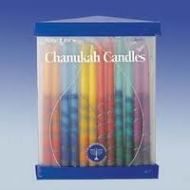AMOS- is one of the 8 distinguished leaders. He was a student of Hoshea and the teacher of Yeshayahu. Amos was a shepherd before the spirit of prophecy came over him. He was a herdsman from the village of Tekoa, and a dresser of sycamore trees. He prophesized during the time of King Jeroboam. Which was about 185 years before the destruction of the First Beit Hamikdash.
Amos is very relevant for today’s times. Amos talks about the nations of the world. How they will not be forgiven for their sins after the third time, and especially if they hurt Israel, they will not survive. Then he goes on to rebuke Israel and how they will not be forgiven, for perverting justice, taking from the poor, idol worship and immorality. This was a rebuke on their times and our times. In their times the judges were bribed, and the poor had no one to fight for them. The rich just took and took, and ignored the laws of the Torah. We see today that the justice system seems to be perverted and not up to the task of judging righteously, and over half of Israel’s poor today are children, and yet nothing is being done to help them by the government.
While there is no real idol worship today – Amos relates idol worship to traps set by the nations of the world with the help of the yetzer hara to prevent the Jewish people from shining. We understand this as referring to technology especially the internet, which with all of its good things also brings a lot of unsuitable stuff into the public eye and makes immorality much more easily accessible and acceptable. He moves onto rebuking the Kingdom of Judah for turning against their brothers.
It goes to show that we cannot judge our fellow Jews because we will bring judgement upon ourselves. In the last perek we go on to talk about galus and redemption. He talks about the Jewish people who are like wheat kernels and sifted through the sifter and only those who are righteous will survive to see the redemption. How those who are evil will basically become part of the nations of the world who will be destroyed during the war of Gag and Magog.
How does this all relate to Chanukah? Well as Chanukah is all about מי לה’ אלי. So is Amos in that if we do what the Torah tells us to do, then we will be considered righteous and worthy of seeing the final redemption. Let us not be like the kernels that fall through the sieve and become like the nations of the world, but rather let us use the message of Chanukah and Amos to be like the hardened stubborn pebbles and kernels of wheat that stay on top. Mashiach is on his way.


